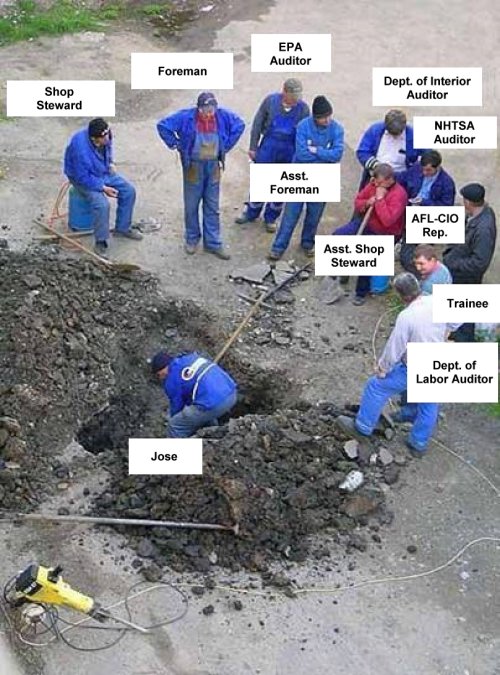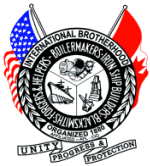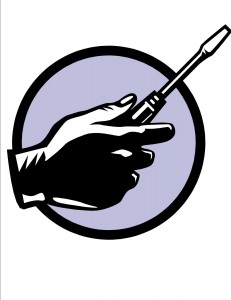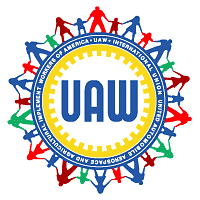 Are Unions Obsolete? I Asked Around to Find the Answer
Are Unions Obsolete? I Asked Around to Find the Answer
By Patty Ewing Robichaud, April 8, 2011
My feelings have been made clear about unions all throughout March 2011 – I am no fan, and the shenanigans in Wisconsin have brought my blood to a boil as I watch unions trying to strong arm businesses like a Mafia protection racket.
And the first thing I hear from liberals when I express my outrage is that I must hate teachers. Huh? No, it is the unions I dislike – not their individual members (unless, of course, they are thugs).
But no need for me to rehash my data here.
Even Rosie O’Donnell blames unions for closing her Broadway musical (see Newsbusters for the transcript) – but that was private sector. Yet, even though she blasted what unions did to her private, money-making enterprise, she is still pro public-sector union. No shock, her liberal brain cannot comprehend the difference between a union shaking down a for-profit company and American taxpayers…but I digress.
So now, armed with my opinion and that of Rosie’s, I queried my Facebook friends in a little coffee klatch group we call Conservatives (title tells all, in case you are wondering) to see what experiences they could share – and I was showered with pros and cons from personal experiences:
Pro Union
By Jennifer Stephens
 I think Unions have their uses, and can be a good thing, as long as they are kept under control. Some Unions (as seen in Wisconsin) have gotten really out of control. But I think the fault for that lies more with Democratic lawmakers who give Unions anything they want in return for money and votes. In my humble opinion, it’s up to Republican/Tea Party lawmakers to keep that in check.
I think Unions have their uses, and can be a good thing, as long as they are kept under control. Some Unions (as seen in Wisconsin) have gotten really out of control. But I think the fault for that lies more with Democratic lawmakers who give Unions anything they want in return for money and votes. In my humble opinion, it’s up to Republican/Tea Party lawmakers to keep that in check.
A Director at a federal office [where I work] is known as the “Dictator,” a control freak. The Union does a lot to keep him in check.
One day, fumes from a gas spill that were making people ill. Workers weren’t allowed to go home without using our sick leave. The Union later stepped in and made management transfer the sick leave to administrative leave.
There’s a lot of favoritism, but it would be even worse without the Union . People who do good work would be fired because the supervisor doesn’t like them. Of course, people who don’t do good work are still around because of the Union . On the balance, I’d rather have the Union , and a few bad people, than let the supervisors fire whoever they want for a personal grudge.
I’m sure there have been other things that Herr Director would like to have done, but didn’t, because he knew the Union wouldn’t let him get away with it. Now, if we had a good Director, would a Union be needed? Maybe not. But there is no way to guaranty that there will always be a good Director. If you get rid of a Union when there is a good Director (and therefore no need of a Union ), you can’t just get the Union back when a bad Director comes in.
Now, do Unions need to be kept in bounds, and not allowed to get out of control? Yes. Do they need to be stopped from donating only to Democratic candidates and causes? To quote Montgomery Gentry: “Hell yeah.” Do Union bosses need to be prevented from becoming as bad as the Dictator I mentioned? Yes. Are there Union bosses as bad as, or worse than, my Dictator? Yes. Let’s deal with individual problem Unions, rather than attacking Unions as a whole.
Like everything, Unions have good and bad. That’s just life. But there’s a reason Labor Unions were formed, and if we get rid of them completely, or strip all their power, the reasons they were needed will just return.
Somewhere in the Middle
United in Limbo
By John Brewer
 When my time was running short in the Marines, I had to make a choice on whether I wanted to stick around or go back to college so I could pursue something of a more, inherently gratifying nature. Since I had a history of falling short on set goals, my father offered a tertium quid -a third way: “I won’t flip the bill for your classes because, frankly, I don’t know if you’ll see things through; however, I can set you up with work that’ll easily provide you with the income to save for school, and prove you are worth the effort…at which point I’ll throw in a few bucks when you’ve convincingly greased the wheels.” I took him up on the offer, and followed through with my discharge from service, whereupon, I started my next gig with Chicago Bridge and Iron, an NTL contractor. “NTL” stands for National Transient Lodge—it is now obsolete, in a way.
When my time was running short in the Marines, I had to make a choice on whether I wanted to stick around or go back to college so I could pursue something of a more, inherently gratifying nature. Since I had a history of falling short on set goals, my father offered a tertium quid -a third way: “I won’t flip the bill for your classes because, frankly, I don’t know if you’ll see things through; however, I can set you up with work that’ll easily provide you with the income to save for school, and prove you are worth the effort…at which point I’ll throw in a few bucks when you’ve convincingly greased the wheels.” I took him up on the offer, and followed through with my discharge from service, whereupon, I started my next gig with Chicago Bridge and Iron, an NTL contractor. “NTL” stands for National Transient Lodge—it is now obsolete, in a way.
The National Transient Lodge was a sector of the International Brotherhood of Boilermakers, a roaming union which contributed funds to the International office based out of Kansas City just like any other Boilermaker Union. Today, as before, we have Local Union Halls. Each State has a Local of their own – some States have more than one Local; Illinois, for example, has three. In terms of Local regulations, members sign a list and wait until job after job absorbs members, whereupon a name climbs the “list’ until he/she is next-up. Monthly dues vary from Local to Local, as do the field dues, pension benefits, annuity benefits, vacation pay, etc., etc.
Members of the NTL sector solicited their own work, and usually worked exclusively for one contractor. I worked for Chicago Bridge and Iron. Members of the National Transient Lodge, since they were “boomers” and solicited their own work and worked exclusively for a particular contractor, had a different set of arrangements. When I started, I lived in Illinois, but traveled to Kentucky (where I’d receive Kentucky pay scale, pension/annuity contributions, etc.), Ohio (where I’d receive Ohio pay scale, pension/annuity contributions, etc.), Wisconsin, Minnesota, California, Florida, and so on and so forth, with the rates always corresponding to whatever the Local Union rules dictated. Members of the Local Unions would occasionally provide men when the job was too big to simply supply NTL workers – and there was always a tension.
From my own vantage point, it looks like this: When I began my stint as a boilermaker, I thought there was no amount of work-ethic which could surpass the ethic I’d left in the Marines. Yet, I was proven wrong. The men I encountered were as surly and unforgiving as anyone I’d met in the USMC and the work was devastating. I went from tank job to tank job in a veritable mirage – running a grinder over welds, jumping 150-pound scaffold boards from one ring to the next, stripping vertical seams of key-plates, working myself to within an inch of my life day-after-day, being yelled at, being told I was too slow, being pressed upon to “think” about what I was doing because it just wasn’t up-to-snuff. The pace was brutal and the atmosphere was non-stop duress. And, at lunch time, or at the bar, when old-timers would expound on how they could do twice the work at half the time when they were my age (22-years old) my thoughts were: “Bullshit! Anyone who did that would die from exhaustion before the day ran out!”
 When Local union members were brought on the job, I saw people of a different demeanor and substantially slower mien. They were there to do the job – just not under duress. They were there to take a butt-chewing like the rest of us, but not without consulting their Local Representative to see if they had cause for a grievance. A different breed, they were. And the resentment was always present, as well as ambivalent. Local unions despised the fact that contractors would come in to their state with their own personal employees to do a job that was under their jurisdiction. Locals did not like the NTL in any way, shape, or form. We were outsiders.
When Local union members were brought on the job, I saw people of a different demeanor and substantially slower mien. They were there to do the job – just not under duress. They were there to take a butt-chewing like the rest of us, but not without consulting their Local Representative to see if they had cause for a grievance. A different breed, they were. And the resentment was always present, as well as ambivalent. Local unions despised the fact that contractors would come in to their state with their own personal employees to do a job that was under their jurisdiction. Locals did not like the NTL in any way, shape, or form. We were outsiders.
But, it was the nature of the business. “Tankie” work was highly competitive and pace was integral. Local jobs, you see, are and were predominantly “time and material” – which means the customer would and does agree to simply pay the cost for man-hours and material until the job is complete; however, NTL jobs were “hard-money” – meaning a bid was put forth from NTL competitors, the lowest bid got the job and the money up-front, and it was up to the “workers” to go forth like rabid bulls,,in unrelenting fashion, to make a profit for their employer. If a profit was made, the workers were rewarded with further employment on the next job.
Members of the NTL had no list to fall back on; we had our own history of work, each to each, which laid the foundation on whether we remained employed or not. If you didn’t make the grade, you weren’t invited to the next job. If you were profitable in their eyes, they gave you another chance to remain profitable in their eyes – and it’s as simple as that. At the same time, members of the Local Unions generally turned down jobs with companies like CBI or Nooter or Matrix or any other NTL contractor because one experience was all they needed to understand they wanted NO part of that kind of pace or duress. To them, it was/is a sweatshop mentality no grown-ass man nor woman need contend with. So, there you go, they didn’t want us in their State doing Boilermaker work – but they had no intention of working for the Contractors doing their work. Figure that one out.
I spent approximately 10-years with CBI before I headed off to school and did my thing. My experience in the real world provided me with a “take” that somewhat jaded my once-admiring view of professors. My new take was that they had every command of their subject matter but hadn’t a clue on what profit entailed or where it came from. They were simply clueless – with the exception of a handful. And when one professor, who also happened to be the Dean of Students, asked me, “Where’re you gonna go from here, John” to which I answered, “back to the boilermakers.” He responded with “I think you’re above that” to which I thought “obviously, you’re below that!”
My aim in going to college was not to improve my job nor improve my standing in the Dean’s eyes. My aim was to simply prove that I could do it like anyone else and, above all, improve myself as a person! While I was in school, the NTL was absorbed into the Local Unions. Wherever you lived, that was your new local. As a Purdue student who lived in Indiana, my local became #374, which I am actually grateful for relevant to the circumstances.
A caveat – if you were/are a former NTL boilermaker, you can still be name-hired or solicit your own work. I returned to CBI for a year until work ran out, on account of the economical situation. So, being a “back-door” member of #374, I signed the list. Ultimately, I got called out for a 3-week job, along with two other, former NTL CBI employees, one of them being my best friend. There were scads of brotherly Local yokels on the job, some of which I appreciated, others which I depreciated opinion-wise. My best friend and I, as well as our fellow NTL-bred work-mate, became superstars – and when the 3-week job came to a close, and it was time for the lay-offs, the contractor didn’t lay us off. They had essentially never worked with anyone like us before. We were fast and our work was quality. So, with another job around the corner, they laid-off several Local members and put us on a transfer order to the next job. On the next job, my best friend and I were made Foremen. On the job after that, we were made General Foremen. And this is a phenomenon very familiar within the boilermaker sector, whether members will admit it or not: anyone who leaves CBI for a different contractor has a tendency to ascend the ladder right quick…because they’ve been trained to produce safely, with high-quality, and in a timely manner without exception. My 3-week job with the Local contractor turned into a year-long employment until work ran out. And, when work ran out, I went back to CBI, which is where I am at right now, working. because there is always a spot for someone who “works” and “works to the benefit of the customer/contractor/business owner.”
We make our own way, people. It isn’t easy, but we can do it. When CBI let me go over a year ago because work ran out, I went Local and turned a 3-week job into a year-long job. When work ran out with the Local contractor, CBI soaked me back up because they knew I was profitable to have around. And now, as I am still in the midst of a tank job, a job I love, the Local contractor has called me up personally, today, and asked “are you available?”
To put a spin on JFK: “Ask not what your Union can do for you, ask what you can do for your union.” When I see the absurd histrionics in Wisconsin over the Union rigmarole, I scoff. The economy went belly-up and those of us in the private-sector Unions did our part: we suspended pay raises and submitted to an agreement to fund supplemental assistance to our ailing benefits/annuity package. Public-sector should not be an exemption. If I’m in it, so you shall be, and so we all shall be. As Dennis Miller would say, “Put on a helmet!”
Above all, performance speaks for itself – I stepped away from the boilermakers for a while but always took pride in it as my vocation/livelihood. There are people who have certain “takes” on those of us in the blue-collar realm, good and bad. But as someone who has seen both sides of the academic/tradesman coin, I can assure you that the people who build your powerhouses and riverboats and tanks and smokestacks are every bit as intelligent as those who sit and read and regurgitate – if not moreso.
The problem with Unions in America is that they are no longer American. People have stepped into their status as Journeyman or tenured-teacher thinking that the conditions their predecessors earned are conditions “entitled” currently. This is not so! We should always be earning the conditions we’ve inherited.
So, while the Locally-bred and politically-oriented boilermakers concentrate on how to gun for contractors and lose more work, I am going to concentrate on being the nest boilermaker on the planet – someone a contractor can’t live without. If Unions are to survive, they have to shirk the politically-oriented mindset, adopt a meritocracy mode of existence, and prove their worth. It’s worked for me!
Con
By Frank V. Colangelo
 In 1987 I was working for Grumman Aerospace (now Northrop Grumman) as an Aerospace Engineer on the F-14D program. The F-14D was an upgrade of the famous Top Gun “Tomcat” advanced superiority fighter. This upgrade included the addition of a HUD (heads up display), upgraded weapon systems and much needed new engines. The old Pratt and Whitney engines were to be replaced by GE F100-400 engines which had approximately twice the thrust of the old engines and yet were more fuel efficient.
In 1987 I was working for Grumman Aerospace (now Northrop Grumman) as an Aerospace Engineer on the F-14D program. The F-14D was an upgrade of the famous Top Gun “Tomcat” advanced superiority fighter. This upgrade included the addition of a HUD (heads up display), upgraded weapon systems and much needed new engines. The old Pratt and Whitney engines were to be replaced by GE F100-400 engines which had approximately twice the thrust of the old engines and yet were more fuel efficient.
Anyway, as one of the Project Engineers on this program, I had gone to GE in Evansdale (Cinncinnati, OH) for a Design Review. This design review took place on the shop floor of the GE facility where the engine was sitting on a dolly/fixture.
During the design review I had approached the engine to point to a component of the engine that could potentially have an interference problem with our aircraft nacelle and our handling fixtures. In order to point to this component without blocking the view of others, I picked up a screwdriver to use as a pointer.  Immediately after I picked up this screwdriver, all of the shop workers/mechanics who were there for assistance immediately walked away from the area which struck me as kind of odd. My counterpart at GE approached me and explained what had happened. He proceeded to tell me that as an Engineer and not a member of the union that I am not allowed to handle a tool and that the workers would probably follow up with a grievance. I explained that I don’t even work for GE but that didn’t matter. The bottom line is that everything came to a screeching halt because of some silly union rule.
Immediately after I picked up this screwdriver, all of the shop workers/mechanics who were there for assistance immediately walked away from the area which struck me as kind of odd. My counterpart at GE approached me and explained what had happened. He proceeded to tell me that as an Engineer and not a member of the union that I am not allowed to handle a tool and that the workers would probably follow up with a grievance. I explained that I don’t even work for GE but that didn’t matter. The bottom line is that everything came to a screeching halt because of some silly union rule.
Now mind you, I was not used to this because Grumman was not a union shop. Engineers could go down to the shop to assist mechanics who were having some difficulty in the manufacturing operation. In fact, it was routine for engineers to get calls from shop workers whenever there was a problem and we would assist them in any way possible, including using tools to show them how to fabricate a part. This led to a very efficient operation that would not be permitted in a union shop.
That experience that I had at GE was a real eye opener and only reinforced my already negative view of unions.
Unions Really Suck
By Allen Pike
I’ve worked for a Union. They provided my health care which was due the very first day I started; it took them 6 months to deliver my insurance cards to me. I also was given a week off after driving a car with a Dealer Plate given to me to use in MY Job and after getting stopped because the plate had been reported stolen which was a mistake by the dealership.
The Union would Do NOTHING! Well, except collect their dues!
My Brothers also have worked for unions. My one brother died on the job! Did the union even send a card? No. Did the Union work to make sure his widow received the proper insurance payout of double the amount because HE DIED AT WORK? NO!
This Union at one time asked their workers to go on strike after the Union had spent the fund on building a new office for the Union Bosses and the fund was PRACTICALLY EMPTY! The only picketing done was the Union workers picketing the union office!
My other brother also worked for a Union doing roofing. He saw this Union hand out work to non-union contractors while not providing their own workers with enough work to to qualify for Unemployment in the off season – and then have the gall to threaten those workers with no income with lawsuits to collect Union dues after this Union let their workers down!
Now I went back to school for machinist training. There were workers from the Local GM Plant (UAW). The classes were only 5 hours a day. So about 1/2 hour of homework given should not have been a big deal, but it was because the Union workers said they were NOT GETTING PAID for doing homework – even as they were getting paid for an 8-hour work day when they only were in class 5 hours. They also left school to go to work for overtime even as they had not worked an 8-hour day. But the real kicker here is not doing the homework even after they had been paid 8 hours for 5 hours of school. Because of this, their class schedule changed to add days because now they did their HOMEWORK in School!
The classes were only 5 hours a day. So about 1/2 hour of homework given should not have been a big deal, but it was because the Union workers said they were NOT GETTING PAID for doing homework – even as they were getting paid for an 8-hour work day when they only were in class 5 hours. They also left school to go to work for overtime even as they had not worked an 8-hour day. But the real kicker here is not doing the homework even after they had been paid 8 hours for 5 hours of school. Because of this, their class schedule changed to add days because now they did their HOMEWORK in School!
Now I work in a business that has personnel go out for installation of our machinery and for repairs. I have heard the same type of story from more than one of them. When they go to a place that is Union, they often find their tools needed for the repairs missing, sometimes thrown in the garbage, sometimes on the opposite side of the plant or building while other times they are lost forever. This type of disrespect I have seen myself in another occupation that I held and it is that type of childish actions we see in the teachers in Wisconsin and other places.
I do want to ask, “Where were these Unions when they were hurting other American workers by these childish actions!
The only thing I have ever gotten out of the unions other than a bad taste in my mouth is that they only care about the union workers maybe, but they don’t care about anybody else!




